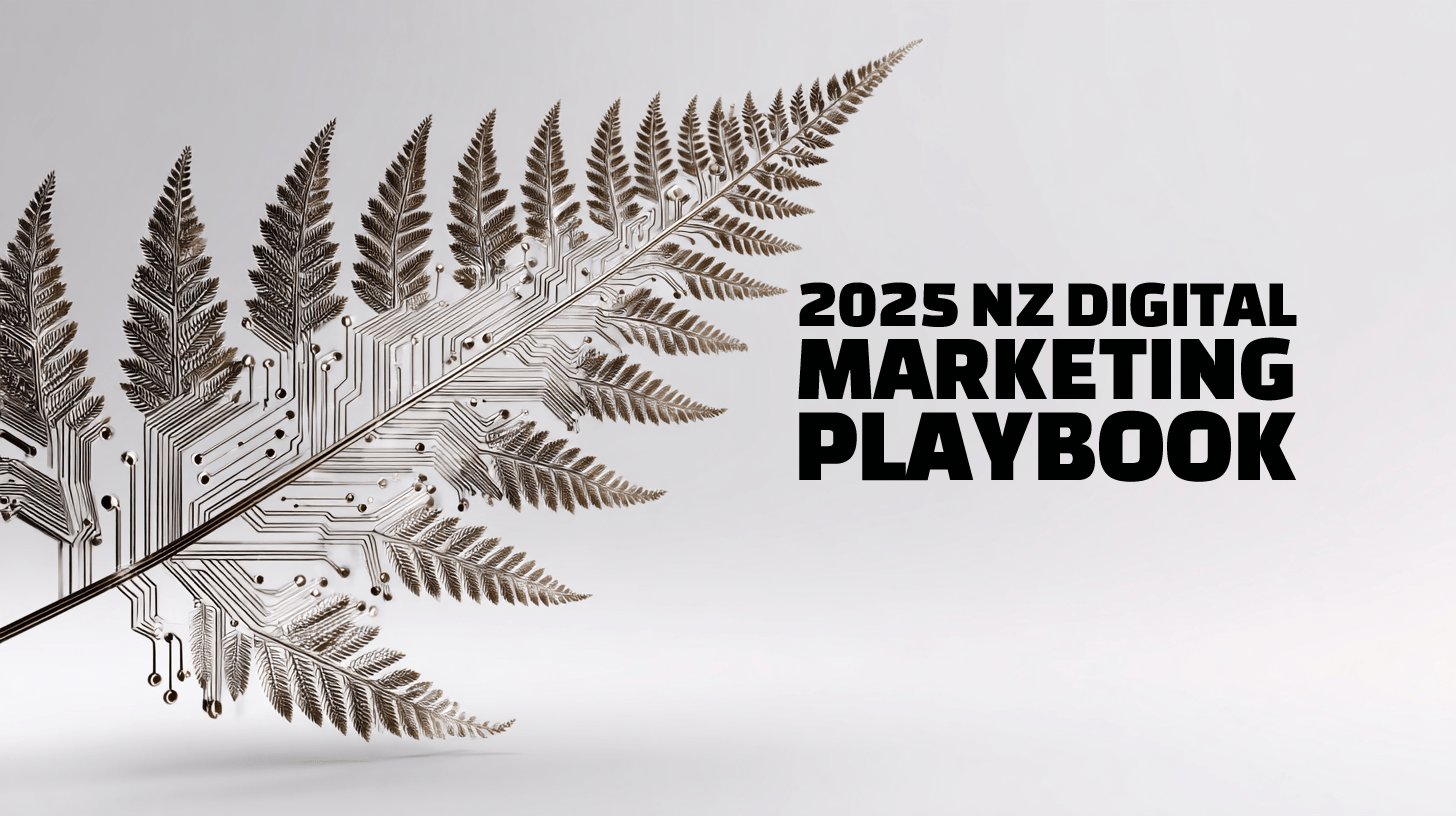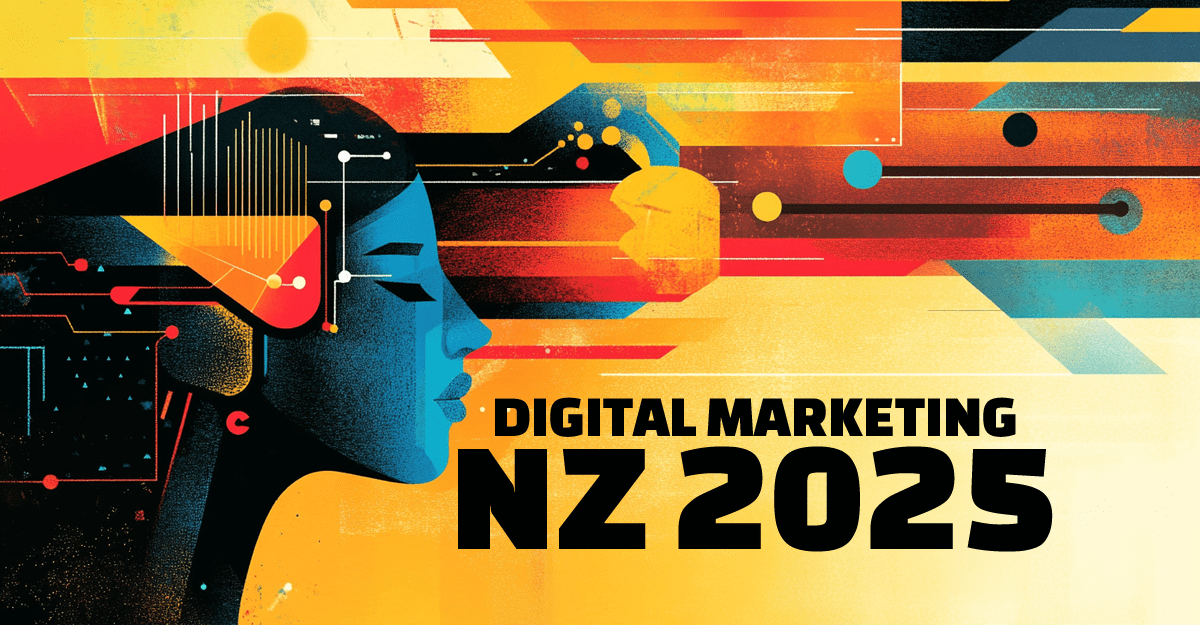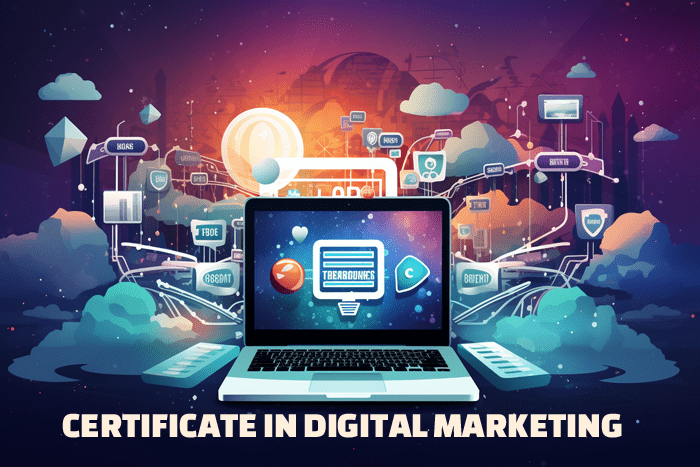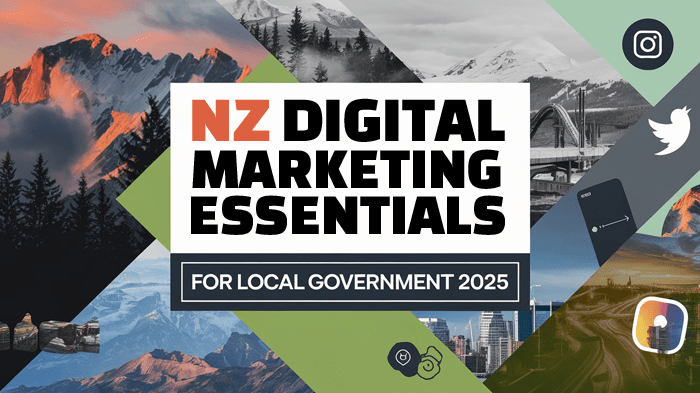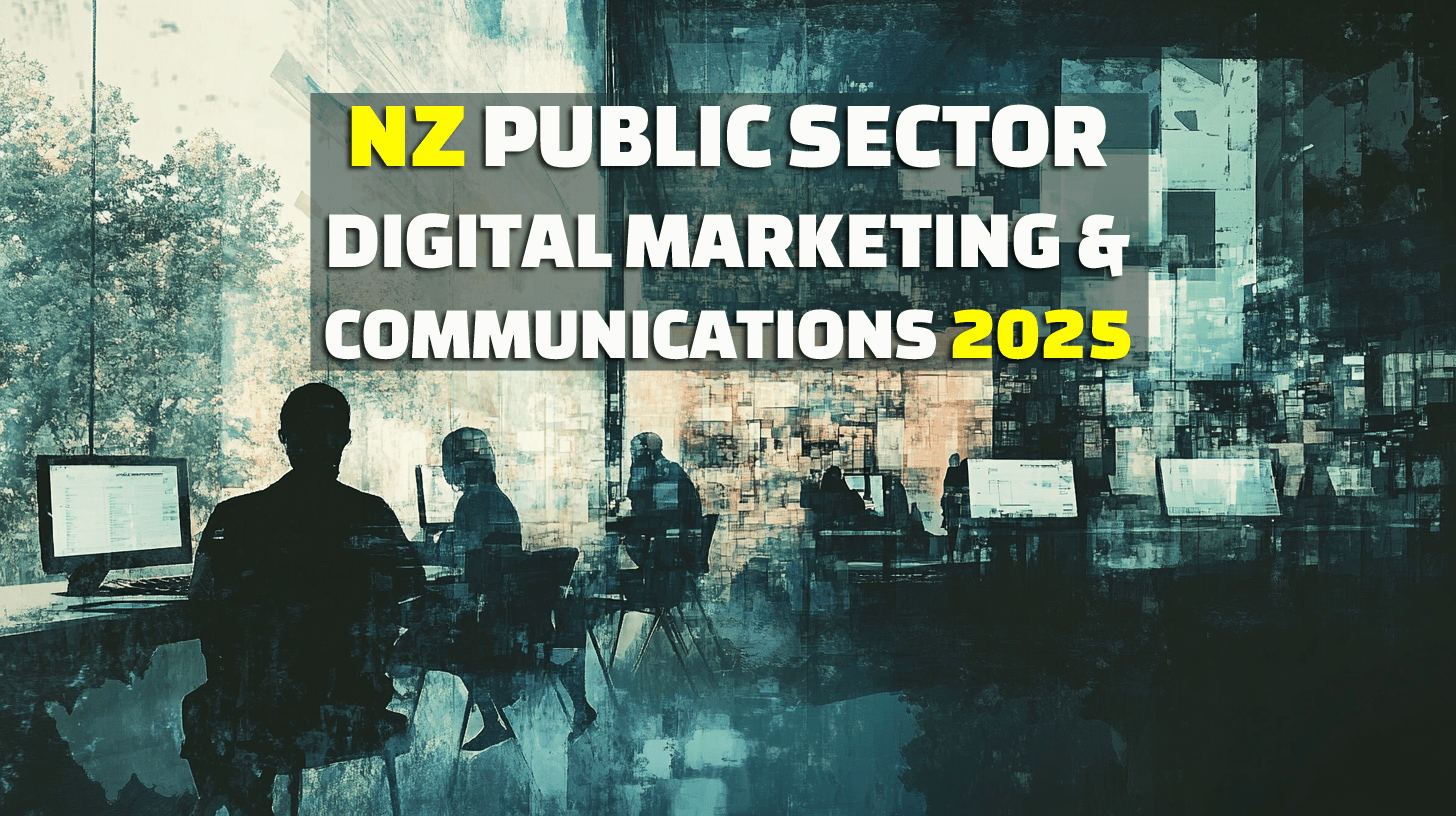Digital Marketing Trends Reshaping New Zealand in 2025
Digital marketing in New Zealand has never been more dynamic or opportunity-rich than it is today. As we navigate through 2025, Kiwi businesses are witnessing a fundamental shift in how consumers discover, engage with, and purchase from brands. With digital advertising accounting for 63% of total ad spend in New Zealand (NZ$2.1 billion), the stakes have never been higher for getting your digital strategy right.
This playbook is your definitive guide to this challenging terrain. We break down the eleven most important trends shaping NZ digital marketing in 2025. More than just a list of predictions, this is a strategic resource packed with 25 actionable tactics you can implement immediately. To bring these concepts to life, we will analyse six standout case studies from innovative Kiwi brands—Countdown, Whittaker's, Panasonic, ASD Dads, Kiwibank and the globally acclaimed 'Best Place to Have Herpes' campaign—to show you what excellence looks like in practice.
Trend 1: The AI Co-pilot Becomes Standard Issue
Artificial Intelligence (AI) has moved from a futuristic concept to a daily assistant for marketers. In 2025, the focus shifts from simple automation to strategic collaboration. AI is now an "ebike for the mind," amplifying human creativity and analytical power, not replacing it. 48% of NZ marketing leaders have invested in AI tools. This gap represents a massive opportunity for businesses willing to move beyond basic adoption to strategic integration.
The numbers tell a compelling story. Harvard Business School data shows employees using AI complete 12.2% more tasks, 25.1% faster, and with 40% higher quality results. Locally, AI-driven marketing strategies now power 70% of digital marketing decisions among New Zealand businesses, with early adopters reporting time savings of 5-10 hours per week on routine tasks. Sky New Zealand leads the charge, using AI for marketing automation and personalised customer experiences, while local SMEs are rapidly adopting tools like ChatGPT, Claude AI, and Google Gemini for content creation and customer service automation.
What makes this trend particularly relevant for New Zealand is the efficiency factor. AI technologies can automate up to 80% of repetitive marketing tasks, allowing smaller Kiwi businesses to compete with larger operations without proportional increases in headcount. By 2025's end, predictive analytics will become standard, AI-powered chatbots will handle 60%+ of initial customer inquiries, and marketing mix modelling will gain significant traction with Google's Meridian platform rollout.
Actionable Tactics:
- Automate Reporting with Natural Language: Use the AI features within tools like Google Analytics to generate plain English summaries of performance trends. Instead of manually digging through data, you can get instant insights like "revenue from email marketing increased 12% last month," freeing you up to focus on strategy.
- Deploy AI for Hyper-Personalisation: Leverage AI to deliver real-time, individualised content. AI algorithms can analyse user behaviour to customise website experiences, product recommendations, and email campaigns, making each customer feel understood.
- Use Predictive Analytics for Lead Scoring: Implement AI tools to forecast which leads are most likely to convert or which customers might be at risk of churning. Platforms like Klaviyo use predictive segments to identify likely buyers, helping you prioritise ad spend and marketing efforts more effectively.
Kiwi Case Study #1: Countdown's Data-Driven Certainty Engine
Countdown, one of New Zealand's largest private employers with 180 stores, demonstrates how to use data and analytics to master a competitive market. Facing shifting consumer habits, Countdown needed to enhance its Search Engine Marketing (SEM) to drive both online and in-store sales.
Working with dentsu, they developed the "Certainty Model," a sophisticated approach that cross-referenced online revenue data with physical foot traffic to predict which customers were most likely to convert. This allowed for a dynamic bidding strategy that targeted customers with high intent in real-time. By matching this with in-store inventory data, Countdown served hyper-relevant ads informing customers about product availability at nearby stores.
The results were transformative. The strategy allowed Countdown to outperform its search budget by a factor of ten, delivering a significant return on investment and proving the power of using predictive analytics to meet consumer needs with precision. This data-first mindset also extends to their website, where they optimised the "no search results" page by adding promotional tiles, leading to a 2.56% uplift in e-commerce conversion rates for desktop users.
More Information:
https://www.dentsu.com/nz/en/our-work/media-countdown-certainty-engine-marketing
Trend 2: The 'Search Everywhere' Imperative
The days of optimising only for Google's blue links are over. In 2025, your customers are searching everywhere: on TikTok, in voice assistants, and on LinkedIn. This fragmentation requires a "Search Everywhere" strategy. SEO is not dead; in fact, search volume is exploding, with Google projected to handle over 5 trillion searches during 2025. However, the practice has evolved. Success now depends on building topical authority and ensuring your brand is the answer wherever and however a question is asked.
Actionable Tactics:
- Optimise for Ask Engine Optimisation (AEO): Shift your content strategy from targeting keywords to answering questions. Structure content in a Q&A format, use clear headings, and provide direct, concise answers (under 50 words) to capture "People Also Ask" (PAA) boxes and voice search results.
- Syndicate Content Across Platforms: Develop a system where a single pillar article is "atomised" into multiple formats for different channels. A blog post can become a script for a YouTube video, a series of TikToks, an infographic for Pinterest, and a LinkedIn article.
- Master Conversational Keywords for Voice Search: With voice search expected to account for over 30% of searches in NZ, optimise for natural, long-tail phrases. Think about how people speak, not just how they type. A local cafe should optimise for "best flat white near me," not just "cafe Auckland."
Trend 3: Video Content Reigns Supreme
Video is no longer just a part of the marketing mix; it is the dominant force. In 2025, video will be the most consumed type of online content, making it an essential part of any NZ digital marketing strategy. From short-form clips on TikTok and Reels to live streaming and in-depth YouTube content, video offers an unparalleled way to engage audiences, build community, and tell your brand's story.
Short-form video content has become the undisputed king of engagement across New Zealand's digital landscape. TikTok engagement rates average 5.53%, Instagram Reels achieve 4.36%, and YouTube Shorts maintain 3.80%—all significantly higher than traditional content formats.
The shift towards video isn't just about entertainment; it's about authentic connection. 81% of consumers want more short-form videos from brands, and 31% of marketers report short-form video generates the highest ROI. This trend particularly resonates in New Zealand, where authentic, unpolished content often outperforms highly produced alternatives.
YouTube remains dominant across all age groups with 85%+ penetration among online Kiwis, making it the most important content platform for New Zealand businesses. However, the real opportunity lies in the platform-specific approach: create content for TikTok first, then adapt for Instagram Reels and YouTube Shorts rather than cross-posting generic content.
Actionable Tactics:
- Embrace Short-Form, 'Lo-Fi' Video: Audiences crave authenticity, not polished perfection. Use platforms like TikTok and Instagram Reels to create raw, human-centric content. These bite-sized videos are perfect for quickly capturing attention, showcasing your brand's personality, and engaging younger audiences.
- Utilise Live Streaming for Real-Time Connection: Go live on platforms like Facebook or Instagram for product launches, Q&A sessions, or behind-the-scenes tours. Live streams foster a sense of immediacy and community, allowing you to connect with your audience in an unscripted, authentic way.
Kiwi Case Study #2: Panasonic's #NZRenoTok Campaign
Panasonic New Zealand showed how to master a specific platform to achieve incredible results. To connect with a new generation of Kiwi homeowners and DIY enthusiasts, they launched the #NZRenoTok campaign on TikTok.
The campaign involved eight creators over six weeks, documenting their home renovation journeys using Panasonic products. By tapping into the highly engaged #RenoTok community, Panasonic moved beyond traditional advertising to become part of a genuine conversation. The results were staggering: the campaign generated over 16 million views, demonstrating the immense power of creator-led video content on the right platform. It proved that even established global brands can win by embracing the culture of a platform and collaborating with authentic voices that resonate with a niche audience.
More Information:
New Home
Trend 4: The Flight to Authenticity and Community
In a world saturated with advertising, consumers are seeking genuine connection. The trend for 2025 is a move away from brand-centric broadcasting and towards community-centric engagement. Audiences want to feel part of a special club, connected by shared interests and values. Your brand's role is shifting from being the hero of the story to being the host of the party, nurturing your "super fans" in dedicated spaces.
Actionable Tactics:
- Prioritise Community Management: Treat your social media channels as two-way conversation platforms. Ask questions, run polls, respond to comments promptly, and share user-generated content (UGC). This builds trust and makes your audience feel heard and valued.
- Nurture Niche Communities: Build dedicated spaces for your most passionate fans. This could be a private Facebook Group, an Instagram Broadcast Channel, or a Substack newsletter. These channels allow you to offer exclusive content and build deeper relationships away from the noise of the main social feeds.
Kiwi Case Study #3: ASD Dads and the Power of a Single Post
The story of ASD Dads shows how a genuine need can spark a powerful community-led movement. Founder Jordan-lee Ikitule started the group to create a safe space for Māori and Pasifika fathers of children with Autism Spectrum Disorder (ASD). Recognising the unique cultural challenges and lack of tailored support, he created a platform for dads to connect, share experiences, and advocate for their children.
What began as a social media initiative quickly grew into a community-driven trust. ASD Dads now hosts free community events, like "Autistic Have A Go Day," which consistently sell out, highlighting the immense need for such spaces. The group operates with cultural sensitivity, respecting values and protocols like the Whare Tapa Wha model. ASD Dads is a profound example of authentic community building. It wasn't a top-down marketing campaign; it was a grassroots movement born from a real problem, proving that the most powerful marketing is often about facilitating connection and serving a community's needs.
Trend 5: The Creator Economy Matures
Influencer marketing is evolving into the broader "Creator Economy," a sector expected to reach $480 billion globally by 2027. For NZ marketers, this means moving beyond one-off paid posts to build authentic, long-term partnerships with creators who align with your brand's purpose. In New Zealand, the trend is towards nano- and micro-influencers, whose smaller, highly engaged niche audiences often deliver a better return on investment.
Actionable Tactics:
- Focus on Micro-Influencers for Deeper Engagement: Look for creators with smaller, dedicated followings in your specific niche. Their recommendations are often perceived as more authentic and trustworthy, leading to higher engagement and conversion rates. New Zealanders are 27.7% more likely to follow influencers and experts than the global average.
- Build Long-Term Creator Partnerships: Instead of single campaign collaborations, build lasting relationships with a core group of creators. This allows them to become genuine brand advocates, integrating your products or services into their content in a more natural and sustained way.
Trend 6: The Future is First-Party Data
With the phasing out of third-party cookies and growing privacy concerns, the ability to collect and use your own data is no longer optional; it is a core business asset. First-party data—information collected directly from your audience with their consent—is the key to effective personalisation and building trust. Your newsletter isn't just a marketing channel; it's your insurance policy against algorithmic changes and a direct line to your most engaged customers.
Actionable Tactics:
- Build Your Email List with Value-Exchange Content: Offer valuable resources like e-books, webinars, quizzes, or exclusive discounts in exchange for an email address. This builds your first-party data asset while providing genuine value to your audience.
- Leverage Your CRM for Personalised Journeys: Use the data in your Customer Relationship Management (CRM) system to create personalised customer experiences. Segment your audience based on their behaviour and preferences to deliver tailored messaging that feels helpful, not intrusive.
Be Transparent with Privacy Policies: Clearly communicate how you collect and use customer data. In an era of heightened privacy awareness, transparency is crucial for building and maintaining trust. Ensure your practices align with New Zealand's privacy laws
Trend 7: The Aotearoa Factor: Purpose, Heritage, and Bravery
Global trends provide a roadmap, but success in NZ digital marketing requires translating them through a local lens. The "Aotearoa Factor" involves understanding unique cultural values, embracing local heritage, and having the courage to tackle important conversations. Consumers increasingly favour brands with strong environmental and ethical commitments, a trend that aligns deeply with the principle of kaitiakitanga (guardianship).
Actionable Tactics:
- Integrate Kaitiakitanga Authentically: Move beyond "greenwashing." Showcase genuine commitment to sustainability in your practices, from eco-friendly packaging using plant-based inks to reducing your carbon footprint. This resonates powerfully in New Zealand's eco-conscious market.
- Use Humour and Local Insights to Be Brave: Don't be afraid to tackle sensitive subjects or use a distinctly Kiwi sense of humour. As the following case studies show, brave, insightful creative can cut through the noise and create a massive cultural impact.
Kiwi Case Study #4: Whittaker's Wonka-Style Golden Ticket Hunt
Whittaker's, a family-owned Kiwi institution since 1950, masterfully leverages its heritage. To celebrate the 75th anniversary of its iconic Peanut Slab, the company launched a "Willy Wonka-style hunt for gold."
Two "gold slabs" were hidden in regular wrappers nationwide, with the finders winning an exclusive tour of the Porirua chocolate factory. An additional 75 silver slabs offered a prize of 75 more Peanut Slabs. The campaign was simple, brilliant, and deeply rooted in nostalgia and a love for a quintessentially Kiwi product. It generated huge buzz and reinforced Whittaker's brand identity as "good honest chocolate," creating a shared, fun experience for the whole nation.
More information:
Whittaker’s celebrates a Kiwi classic
Kiwi Case Study #5: The 'Best Place in the World to Have Herpes' Campaign
Perhaps no campaign better exemplifies bravery and the power of local insight than the New Zealand Herpes Foundation's work with creative agency Motion Sickness. Tasked with "the impossible brief" of breaking the damaging stigma around herpes, they launched a campaign with a bold, counterintuitive goal: Make New Zealand the Best Place in the World to Have Herpes.
Using humour as a "Trojan horse," the campaign featured a series of hilarious educational videos with local celebrities. A live leaderboard, the 'Herpes Stigma Index,' gamified the challenge, encouraging Kiwis to engage with the destigmatisation content to push New Zealand to the top spot.
The results were phenomenal. In eight weeks, New Zealand rose from ninth to first place on the leaderboard, with over 10,776 hours of educational content viewed. The campaign generated over 100 news stories and won the prestigious Grand Prix for Good at the Cannes Lions festival, proving that a brave idea, rooted in local humour and a clear purpose, can change minds and achieve global recognition.
Kiwi Case Study #6: Kiwibank's "This is Kiwi" brand transformation
Kiwibank's brand revitalisation campaign successfully shifted from traditional Kiwiana imagery to represent modern, progressive New Zealand values. The campaign aimed to differentiate from Australian-owned major banks while demonstrating commitment to helping Kiwis thrive financially.
The campaign won the 2023 Grand Effie Award and successfully repositioned Kiwibank from traditional to modern New Zealand bank. The strategy featured successful New Zealand companies making global impact, showcasing innovation over stereotypes.
The approach included storytelling featuring real customer stories, multi-platform integration across digital and traditional channels, and partnership marketing with innovative Kiwi brands like Allbirds, Dawn Aerospace, and Emirates Team New Zealand. The campaign adapted to current events, including the "Brutus" runaway cat story for real-time relevance.
Trend 8: Social Commerce Becomes Seamless
The line between social media and e-commerce has blurred into non-existence. Platforms like Instagram, TikTok, and Facebook are now fully-fledged virtual storefronts, allowing users to discover and purchase products without ever leaving the app. This rise of "social commerce" makes the path from inspiration to purchase shorter and more seamless than ever before.
Actionable Tactics:
- Enable In-App Purchasing: Set up TikTok Shop and Instagram Shopping to allow customers to buy directly from your posts, reels, and stories. Tag products in your content to make the shopping experience frictionless.
- Host Live Shopping Events: Use live streaming to create dynamic shopping experiences. Demonstrate products, answer questions in real-time, and offer exclusive deals to live viewers to build excitement and drive immediate sales.
- Use Social as a Customer Service Hub: Your customers expect prompt support on the platforms where they engage with you. Use social media for customer service, leveraging AI-powered chatbots for instant responses to common queries and ensuring a dedicated team is available for more complex issues.
Trend 9: Technical Foundations Are Non-Negotiable
While strategy and creative are exciting, they must be built on a solid technical foundation. In 2025, technical SEO is not just for developers; it's a core marketing concern. Key priorities include mobile-first optimisation, site speed, and security. With over 70% of B2C website traffic in NZ coming from mobile devices, a poor mobile experience is no longer acceptable.
Actionable Tactics:
- Prioritise Mobile-First Design: Ensure your website is fully responsive and provides an excellent user experience on all devices. Google now uses mobile-first indexing, meaning it primarily uses the mobile version of your site for ranking and indexing.
- Optimise for Core Web Vitals: Use Google's PageSpeed Insights to measure your site's performance on three key metrics: Largest Contentful Paint (LCP), Interaction to Next Paint (INP), and Cumulative Layout Shift (CLS). A site that loads in under three seconds is essential.
Implement Structured Data (Schema Markup): Use schema markup to help search engines understand the context of your content. This code helps you appear in rich results, like those for products, recipes, events, or FAQs, making your listings more visible and informative in search results.
Trend 10: The New Measurement Mindset
As tracking becomes more complex, marketers are adopting a new mindset around measurement. The focus is shifting from simple vanity metrics to understanding true business impact. This includes a rise in marketing experiments, a better understanding of how brand building affects pricing power, and using AI to test creative effectiveness.
Actionable Tactics:
- Run Marketing Experiments: Go beyond standard reporting by running controlled experiments to measure the incremental impact of your advertising. Use A/B testing and platform lift studies to understand causality and find out what really works.
- Track Price as a KPI: Recognise that strong brands have greater pricing power. Track pricing effects over time to calculate advertising's long-term payback and frame marketing as a crucial investment in building future economic value, not just a short-term cost.
Trend 11: Sustainability messaging resonates despite economic pressures
Sustainability consciousness remains remarkably strong among New Zealand consumers despite ongoing cost-of-living pressures. 47%+ of Kiwis care about sustainability when choosing brands and products, and sustainability ranks as the third most important purchase factor after quality and price.
Recent research from Kantar/SBC Better Futures 2025 reveals that 75% of New Zealanders want green claims independently verified, indicating sophisticated consumer awareness. This creates both opportunities and challenges for businesses wanting to leverage sustainability in their marketing.
The key sustainability areas resonating with New Zealand consumers include environmental impact (carbon footprint reduction and renewable energy usage), ethical sourcing (supply chain transparency and fair trade practices), waste reduction (circular economy principles and packaging innovations), and local sourcing (supporting domestic businesses and reducing transport emissions).
Electricity retailers and supermarkets are perceived as the most sustainable industries, while 20% of consumers consider sustainable operations the most important factor in purchase decisions. This creates clear opportunities for businesses in these sectors to differentiate through sustainability messaging.
The most effective approach involves authentic actions before marketing claims, transparent communication about environmental efforts and impacts, third-party verification through recognised sustainability certifications, and local partnerships with New Zealand environmental organisations and suppliers.
Conclusion
The world of NZ digital marketing today is one of immense opportunity for businesses that are prepared to adapt. The trends outlined above—from the strategic use of AI and the "Search Everywhere" imperative to the critical importance of authenticity and community—are not isolated shifts. They are interconnected forces creating a new marketing reality.
Success will be defined not by chasing every new shiny object, but by building a strategy on solid foundations: a deep understanding of your audience, a commitment to providing genuine value, the courage to be authentic, and the wisdom to use technology as a tool to amplify human connection. By embracing the tactics and learning from the standout Kiwi brands in this playbook, you can build a resilient, high-impact marketing strategy that not only reaches customers but builds lasting relationships and drives sustainable growth.
Frequently asked questions (FAQ) about NZ digital marketing
Q: What makes digital marketing different in New Zealand compared to other markets?
New Zealand's digital marketing landscape has several unique characteristics that require tailored approaches. The market is geographically dispersed with distinct regional preferences, from Auckland's competitive business environment to Wellington's government sector focus. Cultural sensitivity is crucial, particularly regarding Māori cultural elements which require proper consultation to avoid appropriation.
The regulatory environment is privacy-focused with the Privacy Act 2020 requiring transparency in personal information collection. New Zealand consumers demonstrate strong environmental consciousness, with 47%+ caring about sustainability when choosing brands, and prefer authentic, community-oriented content over polished corporate messaging.
The digital landscape is highly concentrated, with 88% of digital revenue going to pure digital platforms like Google and Meta. This creates both opportunities and challenges for businesses seeking integrated approaches. Mobile usage is exceptionally high, with mobile connections exceeding the population due to multiple devices per person.
Q: How much should New Zealand businesses budget for digital marketing?
Digital marketing budgets in New Zealand vary significantly based on business size, industry, and growth objectives. Small businesses ($2,000-$5,000/month) should focus on low-cost, high-impact tactics like local SEO, email marketing, and social media, emphasising organic growth and community building while using free and low-cost tools.
Medium businesses ($5,000-$15,000/month) can implement a mix of organic and paid strategies, investing in marketing automation and AI tools while focusing on proven high-ROI tactics. Large businesses ($15,000+/month) should implement comprehensive multi-channel approaches, investing in advanced personalisation and automation while testing and scaling across all channels.
The key is allocating approximately 7-10% of total revenue to marketing, with digital comprising 60-70% of the marketing budget. Successful New Zealand businesses typically invest 40% in search marketing (reflecting digital's 47% share), 25% in social media and content, 20% in email and automation, and 15% in emerging channels and testing.
Q: Which digital marketing channels provide the best ROI for New Zealand businesses?
Search marketing consistently delivers the highest ROI, representing 47% of digital spend in New Zealand and growing 7.7% year-on-year. This includes both SEO and paid search, with local SEO being particularly effective for businesses serving specific regions.
Email marketing provides exceptional ROI when implemented with proper segmentation and automation, typically delivering $42 for every $1 spent. Social media marketing offers strong engagement, with organic social providing cost-effective reach and paid social enabling precise targeting.
Content marketing builds long-term value through improved search rankings, thought leadership, and customer education. Video marketing delivers the highest engagement rates, with short-form video generating 12x more shares than text content.
The most effective approach combines multiple channels synergistically, with search marketing capturing demand, content marketing building authority, social media fostering engagement, and email marketing nurturing relationships. Successful New Zealand businesses integrate these channels rather than treating them as separate initiatives.
Q: How can New Zealand businesses compete with international companies online?
New Zealand businesses have several competitive advantages when competing internationally online. Local market knowledge and cultural understanding provide significant advantages in serving New Zealand customers. Time zone alignment with Australia and Asia-Pacific markets creates operational benefits, while established local relationships provide credibility and trust.
Regulatory and compliance expertise in New Zealand's specific environment provides advantages over international competitors unfamiliar with local requirements. Agility and responsiveness often exceed larger international competitors, enabling faster adaptation to market changes.
Focus on niche specialisation rather than broad competition allows New Zealand businesses to establish expertise in specific areas. Authentic storytelling about New Zealand experience resonates strongly with local audiences, while sustainable and ethical practices align with Kiwi values.
Digital tools level the playing field, enabling small New Zealand businesses to access the same marketing platforms and technologies as international competitors. AI and automation particularly benefit smaller operations by reducing resource requirements while maintaining competitive capabilities.
Q: What are the most in-demand digital marketing skills for 2025?
A: The most in-demand skills include AI proficiency and data analytics, strategic content creation with a focus on SEO and E-E-A-T, omnichannel marketing, and expertise in marketing automation and CRM tools. A blend of analytical, creative, and technical ability is required.
Q: Is SEO still a good career in NZ for 2025?
A: Yes, absolutely. While SEO is evolving rapidly, it continues to deliver one of the highest returns on investment of any marketing channel. Demand for skilled SEO professionals who understand technical SEO, content strategy, and cross-platform optimisation remains very high.
Q: How do I start building a first-party data strategy?
A: Start by creating valuable content or offers (like guides, webinars, or discounts) that people are willing to exchange their email address for. Use this to build your email newsletter list. Be transparent in your privacy policy about how you use data and focus on using that data to provide a more personalised and helpful customer experience.
Q: What is the difference between SEO and AEO?
A: Traditional Search Engine Optimisation (SEO) focuses on ranking your website in a list of search results. Ask Engine Optimisation (AEO) is the evolution of this, focusing on optimising your content to be the direct answer within AI-powered search tools, voice assistants, and featured snippets. It prioritises answering questions clearly and concisely.
Q: Which social media platforms are most important for NZ businesses?
A: It depends on your audience. Facebook remains dominant for users over 30, while Instagram and TikTok are key for reaching those under 35. YouTube has an enormous advertising reach of 88.7% of the adult population in NZ, making it a powerful platform for video content. For B2B, LinkedIn is exceptionally strong, with an ad reach of over 75%.
Q: What are the biggest digital marketing mistakes New Zealand businesses make?
Treating digital marketing as an afterthought rather than a strategic priority remains the most common mistake. Many New Zealand businesses underinvest in digital capabilities relative to their international competitors, limiting their ability to compete effectively.
Ignoring mobile optimisation is particularly problematic given New Zealand's mobile-first user behaviour. Failing to leverage local SEO opportunities wastes significant potential, especially for businesses serving specific geographic areas.
Inappropriate use of Māori cultural elements without proper consultation can damage brand reputation and relationships. Neglecting privacy compliance requirements under the Privacy Act 2020 creates legal and reputational risks.
Focusing on vanity metrics rather than business outcomes leads to ineffective budget allocation. Failing to integrate channels creates inefficient, siloed approaches that miss opportunities for synergy.
Underestimating the importance of authentic, community-oriented content in favour of generic corporate messaging fails to resonate with New Zealand audiences. Inadequate testing and optimisation prevents businesses from maximising their digital marketing investments.
Transform your digital marketing strategy today
The digital marketing landscape in New Zealand presents unprecedented opportunities for businesses willing to embrace both global best practices and local market insights. The convergence of AI technologies, changing consumer behaviour, and evolving privacy regulations creates a perfect storm of opportunity for early adopters.
Success in 2025 requires more than just implementing tactics—it demands a fundamental understanding of what makes New Zealand unique. The businesses that will thrive are those that combine international digital marketing excellence with authentic Kiwi values: sustainability, community, authenticity, and innovation.
The trends, tactics, and case studies in this playbook provide a comprehensive foundation for digital marketing success. However, implementation is everything. Start with the tactics that align most closely with your current capabilities and customer needs, then gradually expand your approach as you build expertise and see results.
The New Zealand digital marketing opportunity has never been greater. Consumer behaviour is digital-first, technology tools are more accessible than ever, and the competitive landscape rewards businesses that understand and serve the unique needs of Kiwi customers.
Don't wait for perfect conditions or complete strategies. Begin with one or two tactics from this playbook, measure results rigorously, and build momentum through consistent execution. The businesses that begin their digital transformation today will be the market leaders of tomorrow.
Your digital marketing transformation starts now. Choose your first tactic, set your measurement framework, and begin building the digital marketing engine that will drive your business forward in 2025 and beyond.
Sources:
- IAB New Zealand Digital Advertising Revenue Report 2024
- Statistics New Zealand Digital Economy Survey 2024
- Kantar Better Futures 2025 Report
- Google Consumer Insights New Zealand 2024
- HubSpot State of Marketing Report 2024
- Hootsuite Digital 2024 New Zealand Report
- TikTok Marketing Science Global Report 2024
- Privacy Commissioner New Zealand Annual Report 2024
- Motion Sickness Case Study Reports 2024
- Effie Awards New Zealand 2024 Winners
--
To help you stay up-to-date with Digital Marketing, check out our online training courses:
Check out the details of our NZ Digital Marketing Essentials 2025 online training course here.
—
Certificate in Digital Marketing
Unlock the full potential of digital marketing with our “Certificate in Digital Marketing” course, meticulously crafted for New Zealand marketers who are eager to excel in the digital realm. This comprehensive certification course offers a deep dive into every critical aspect of digital marketing—from SEO and SEM to social media marketing, content marketing, email campaigns, and analytics. It’s the perfect blend of theory and practical skills, designed to empower you with the knowledge and tools needed to navigate the complexities of the digital world effectively.
As the digital landscape continues to evolve, staying competitive means not just keeping up, but staying ahead. That’s where this course comes in. Whether you’re aiming to boost your career, elevate your business, or simply stay relevant in an ever-changing field, our “Certificate in Digital Marketing” provides a solid foundation and advanced insights tailored to the New Zealand market. Equip yourself with cutting-edge skills, earn a certification that speaks volumes, and open doors to new opportunities in the digital marketing sphere. Begin your journey to becoming a digital marketing expert today.
For more details of the Certificate in Digital Marketing online course, please click here.
—
Digital Marketing 101
Dive into the digital realm with our “Digital Marketing 101” course, designed specifically for New Zealand marketers who are ready to harness the power of digital channels to skyrocket their marketing efforts. This course lays down the fundamentals of digital marketing in a concise, clear, and actionable manner. From understanding the digital marketing landscape to mastering the art of SEO, social media, email marketing, and analytics, we’ve got you covered. It’s the perfect starting point for beginners and a great refresher for seasoned professionals looking to update their knowledge with the latest trends and strategies.
In today’s digital age, a solid foundation in digital marketing is not just an advantage; it’s a necessity. With “Digital Marketing 101,” you gain access to invaluable insights and practical tools tailored for the New Zealand market, ensuring you can not only compete but excel in your marketing endeavors. Transform your approach to digital marketing, enhance your online presence, and drive impactful results for your business or career. Start your journey to digital marketing mastery with us and unlock the full potential of your marketing strategy.
For more information about Digital Marketing 101, please click here.
--
PRACTICAL DIGITAL MARKETING FOR NZ SMALL BUSINESS
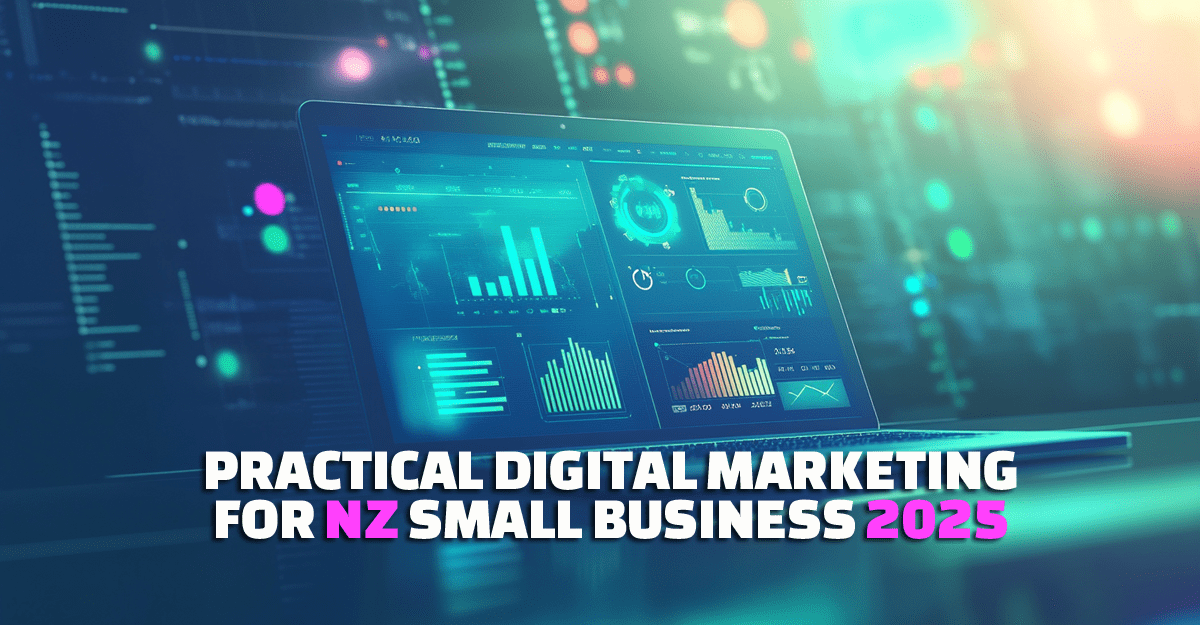
This course has been specifically crafted for Kiwi small business owners who want real, practical results – not just marketing theory.
As a small business owner in New Zealand, you face unique challenges: a smaller market, tight budgets, limited time, and the constant pressure of competing with both local and international players. The good news? Your size and local presence can be your greatest advantage – if you know how to leverage them effectively.
This comprehensive course cuts through the overwhelming world of digital marketing to deliver exactly what you need to know, tailored specifically for the New Zealand market. You’ll learn practical, proven strategies that work for businesses your size, in your market.
Check out the details of our Practical Digital Marketing for NZ Small Business course here.
USING AI FOR MARKETING

It’s now more important than ever for businesses to master the essential elements of AI for marketing.
Dive into the digital future with our AI for Marketers course! This exclusive training is your golden ticket to mastering AI in the marketing realm, specially designed for New Zealand’s vibrant marketing community.
Unlock the power to revolutionize your strategies, elevate content creation, and decode consumer insights like never before. Whether you’re aiming to amplify engagement, boost conversions, or innovate with unparalleled personalization, this course is your pathway to becoming an AI-savvy marketer.
Check out the details of our AI for Marketers online training course here.
For Local Government Professionals: Engaging Your Community
The Challenge: As a marketer or communications professional in local government, you operate in a uniquely complex environment. Your role involves far more than just promotion; you must effectively engage diverse communities, ensure absolute transparency in ratepayer communications, and manage critical public information campaigns. All of this must be done while adhering to strict compliance and regulatory frameworks, such as the Local Government Official Information and Meetings Act (LGOIMA) and the Web Content Accessibility Guidelines (WCAG).
Our Solution: Local Government Digital Marketing Essentials NZ 2025
This is a highly specialised course, meticulously tailored for the specific needs of New Zealand councils. Its curriculum was built from the ground up to address your unique challenges. You will learn through dedicated modules on AI-Powered Strategy for councils, Next-Generation Content Marketing (including how to create accessible public notices and effective emergency communications), Advanced Search (ensuring council documents and forms are easily findable), and Social Media Evolution (covering best practices for managing public feedback, maintaining political neutrality, and handling misinformation). This course provides the exact skills required to master NZ council Communications in this digital world and build trust with your residents.
-
Find out more: https://netmarketingcourses.co.nz/courses/nz-digital-marketing-essentials-for-local-government-2025/
For Central Government Communicators: Driving National Strategy
The Challenge: If you work in central government, your challenges are those of scale, complexity, and national significance. You are responsible for managing large-scale public information campaigns, communicating complex policy to the entire country, and ensuring that all digital platforms are secure, inclusive, and accessible to every New Zealander. You are at the forefront of implementing the government's ambitious digital transformation agenda, which demands a strategic shift away from siloed departmental operations toward integrated, citizen-centric services.
Our Solution: NZ Public Sector Digital Marketing & Communications 2025
This course is a carefully tailored training programme for NZ central government communications. It moves beyond tactics to focus on high-level strategy. You will master key areas through lessons on the transformed digital landscape (including navigating the NZ Privacy Act and OIA-related considerations), AI-powered marketing strategies (for national stakeholder segmentation and ethical AI governance), and measurement and attribution (learning to set KPIs that demonstrate clear outcomes for public initiatives). This course directly equips you with the skills to operationalise the Strategy for a Digital Public Service, manage an NZ Government digital strategy and future-proof your communications in line with national objectives.
